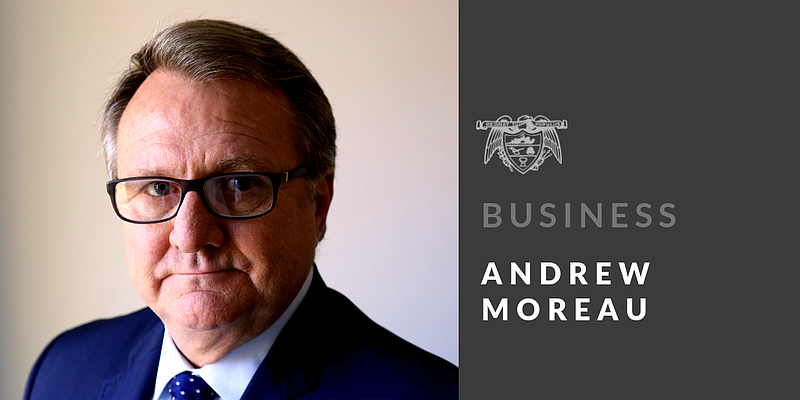It appears to be more difficult for Black Arkansans to own homes as a disparity between white and Black homeowners continues to widen, growing to 26%. The pandemic appears to be a factor.
Even more, Black and Hispanic renters have more difficulties making rent payments than do white renters.
The housing gap between Blacks and whites is wider than it was during the 2008 recession and financial crisis, when lenders tightened lending practices for home mortgages. Disparities in home ownership underline the difficulties members of minority groups face in building wealth and economic security.
Those are findings from the Hope Policy Institute of Mississippi, an organization that surveyed more than 400 homeowners and over 100 renters to build an in-depth picture of the renting and homebuying experience across Arkansas.
It's not very pretty.
The report pinpoints the factors driving the racial disparities in the housing market, including affordable quality housing, lack of access to capital and covid-19's impact.
"The housing crisis in Arkansas and its disproportionate impact on Black and Hispanic households is a reflection of systemic inequities that have historically prevented Black and brown families from accessing a piece of the American dream," said Calandra Davis, a policy analyst at Hope. "Add to that a pandemic that also disproportionately impacts these same communities, and you have families struggling to find and keep housing during one of our country's most precarious times."
The study also found that a significant number of Arkansans were struggling with rent payments -- 25% were behind on rent at the end of August. Racial disparities were evident as well, with 40% of Black renters and 20% of Hispanic renters behind on payments. Those findings compare with about 15% of white renters behind on monthly payments.
Looking for good news? Arkansas fares better than surrounding states in home ownership and rent disparities based on race.
In Alabama, the home ownership gap is 26.6%; Louisiana is 27.8%; Mississippi is 27.2%; and Tennessee leads the way at 31.3%. Arkansas also bests the U.S. overall: the national gap is 30.2%, according to Hope's findings. The home-ownership gap grew in every southern state compared with a similar study during the 2008 financial crisis.
The institute made the following recommendations to help alleviate the problems in Arkansas:
• Quick and equitable distribution of covid-relief dollars, especially to support the Arkansas Rent Relief Program and the Arkansas Homeowner Assistance Fund.
• Extension of credit and down-payment assistance to borrowers harmed by potential discriminatory housing and lending practices.
• More stringent enforcement of state fair housing laws.
Home ownership is key to building wealth for families and the widening disparities perpetuate economic challenges for minorities, the study said.
"Discriminatory housing policies have exacerbated the racial wealth gap in the Deep South," it said. "Residential segregation, redlining and prejudicial lending practices have undermined the ability of Black Americans to generate wealth, which is a vital indicator of financial mobility, health, employment and other quality of life metrics."
Hope Policy Institute is the advocacy arm of Hope Enterprise Corp. and Hope Credit Union. The organization develops and promotes policies to increase investment and expand financial services for minority groups in the South.
The full report is available at hopepolicy.org.
ECONOMIC MOBILITY
The Women's Foundation of Arkansas has been rewarded for its efforts to reduce gender and racial wealth gaps in underserved communities across Arkansas.
The foundation will receive $50,000 from Bank of America, which has named the Arkansas organization the neighborhood champion for its work in the state. In particular, Bank of America praised the foundation for a new program to boost the economic advancement of Arkansas' Black female entrepreneurs.
As part of the neighborhood champion program, the women's foundation also will receive virtual leadership training from experts who work with non-profits to enhance human capital management, increase financial sustainability and improve storytelling.
"As our communities continue to recover and navigate a changing landscape, nonprofits are still experiencing significant demands and are in need of resources to fuel economic and social progress," said Heather Albright, president, Bank of America in Arkansas. "WFA helps bridge important gaps for underserved women and girls to help them achieve economic equity."
The foundation is designing a new program, called the Women-Owned Economic Mobility Hub, to offer financial products and support services tailored to small businesses owned by Black women called the Women-Owned Economic Mobility Hub. The neighborhood champions funding will provide the organization the flexibility to ensure the women served are involved in planning and launching the hub.
In addition to Arkansas, Bank of America is bringing Neighborhood Champions to more than 40 communities across the nation.
FED APPOINTMENTS
Three Arkansans have been appointed to roles leading community development efforts at the Federal Reserve Bank of St. Louis. The Fed's Community Development Advisory Council meets twice annually to recommend regional development efforts.
Last week, the Fed named Martie North of Little Rock; Kim Davis of Bentonville and Candace Williams to the council. North is with Simmons Bank; Davis is an adviser with the Walton Family Foundation; and Williams leads the Rural Community Alliance in Little Rock. The appointments are for terms through 2024.
Council members represent nonprofit organizations, financial institutions, universities, government and foundations from across the Fed's Eighth District, which includes Arkansas and parts of Illinois, Indiana, Kentucky, Mississippi, Missouri and Tennessee.
Mervin Jebaraj, economist with the Sam M. Walton College of Business, also serves as a member of the council.
Column ideas or recommendations? Thoughts or musings that need pursuing? Contact me at amoreau@adgnewsroom.com or at 501-378-3567.
